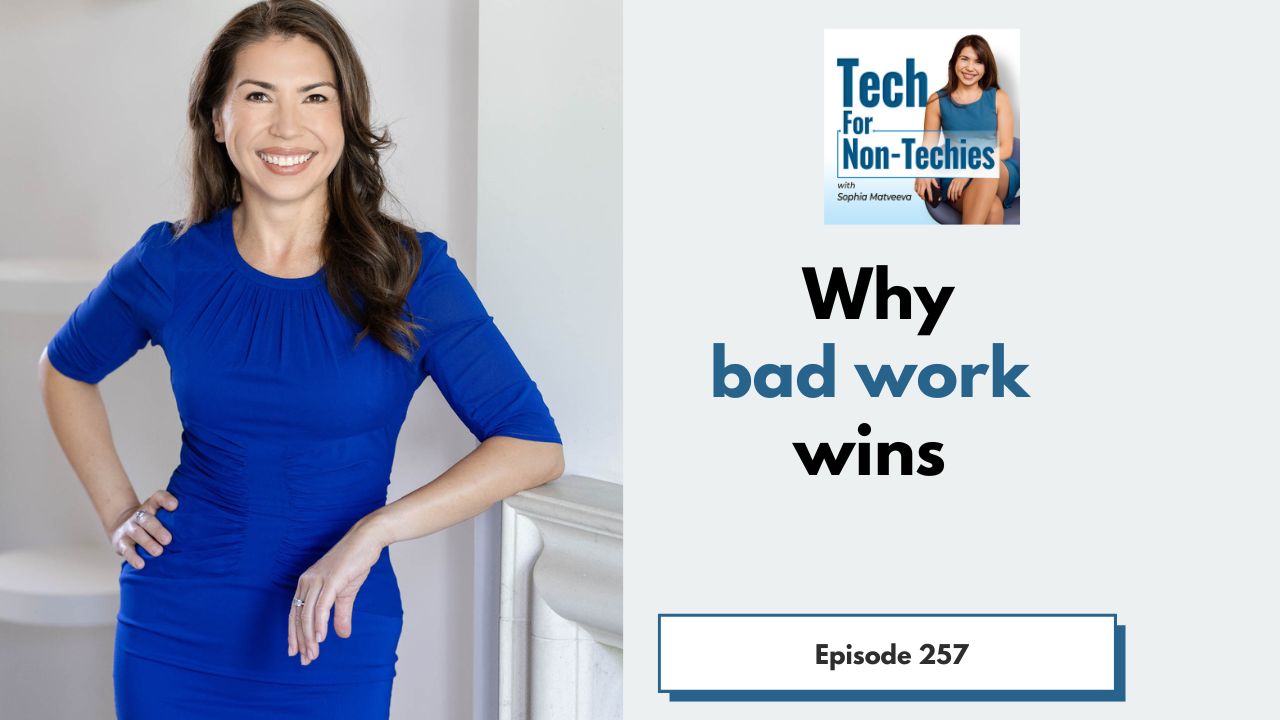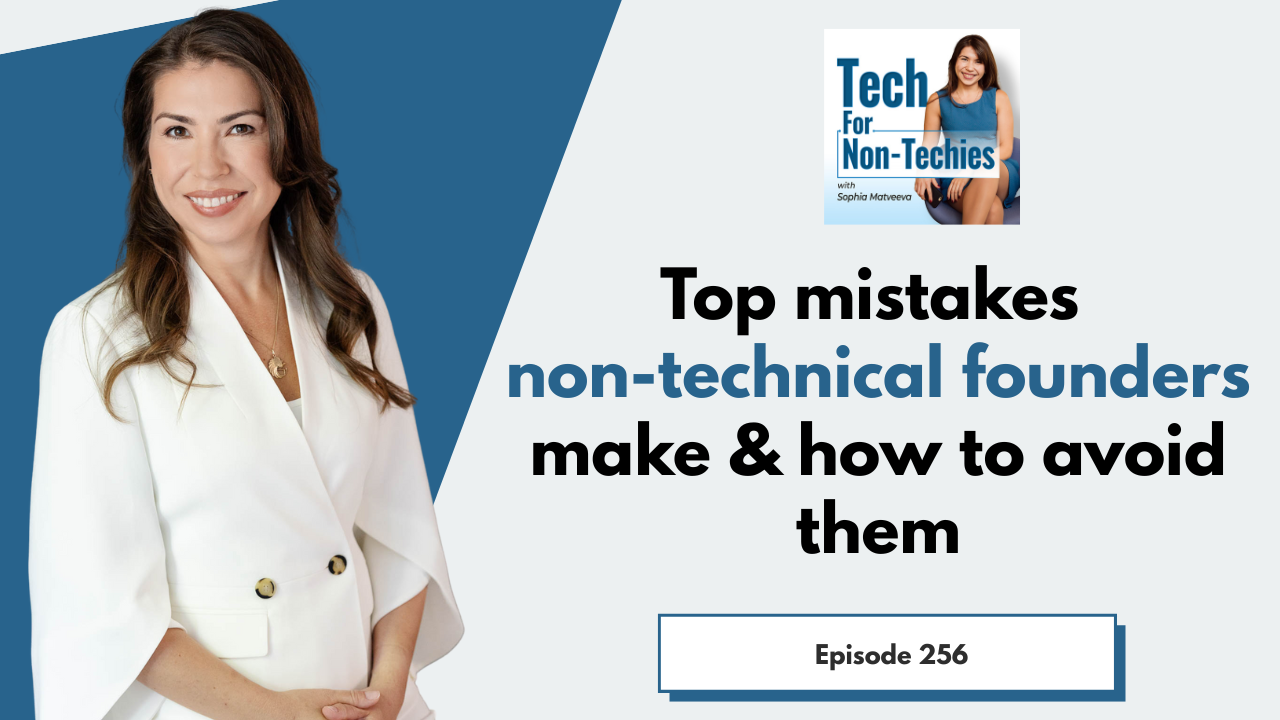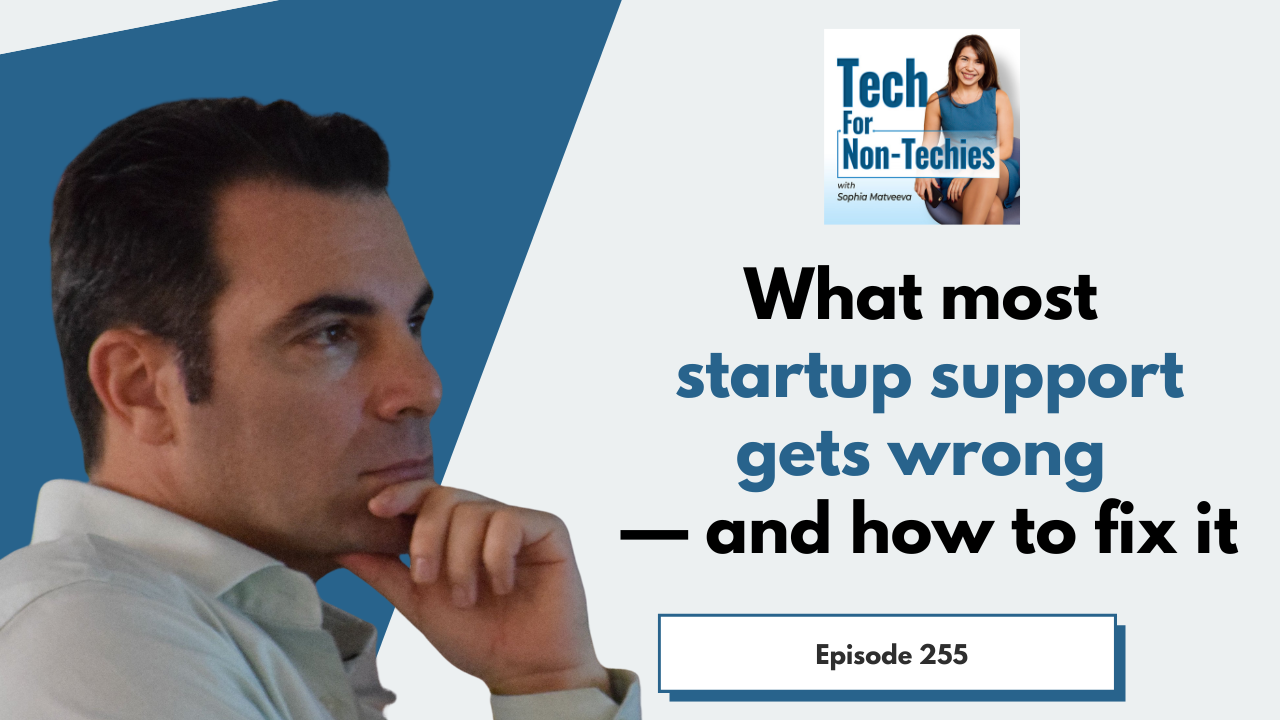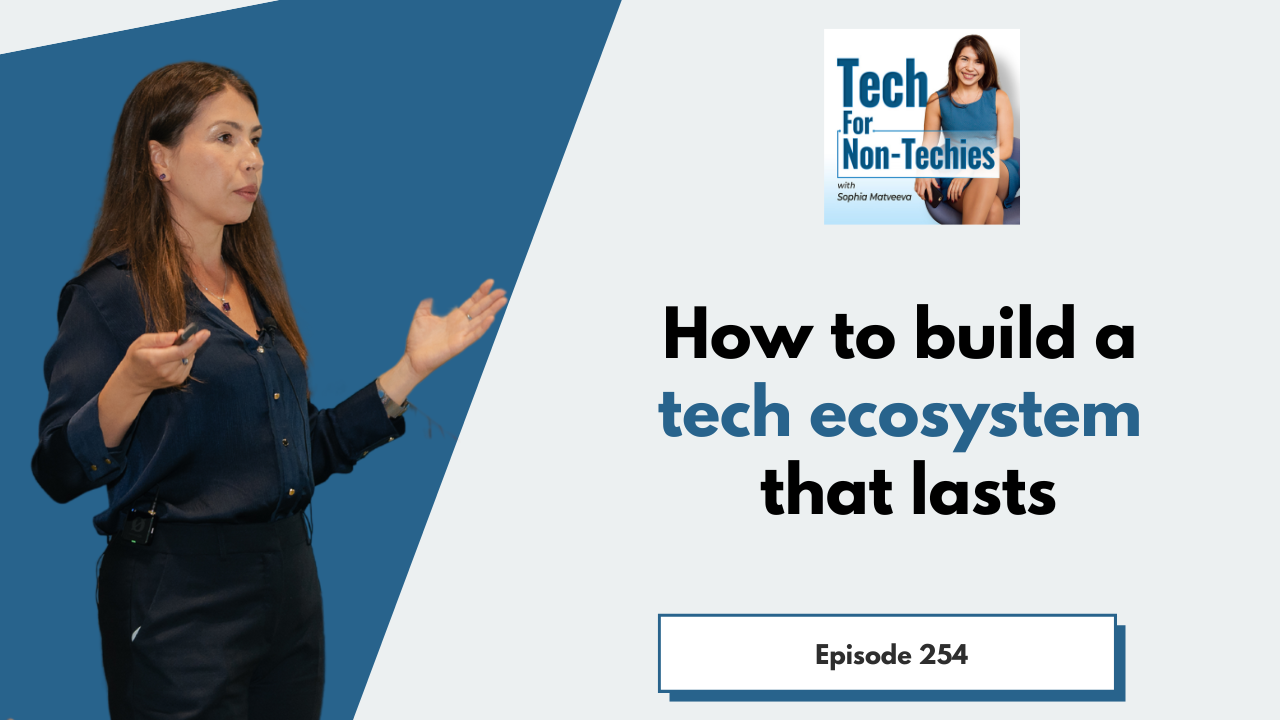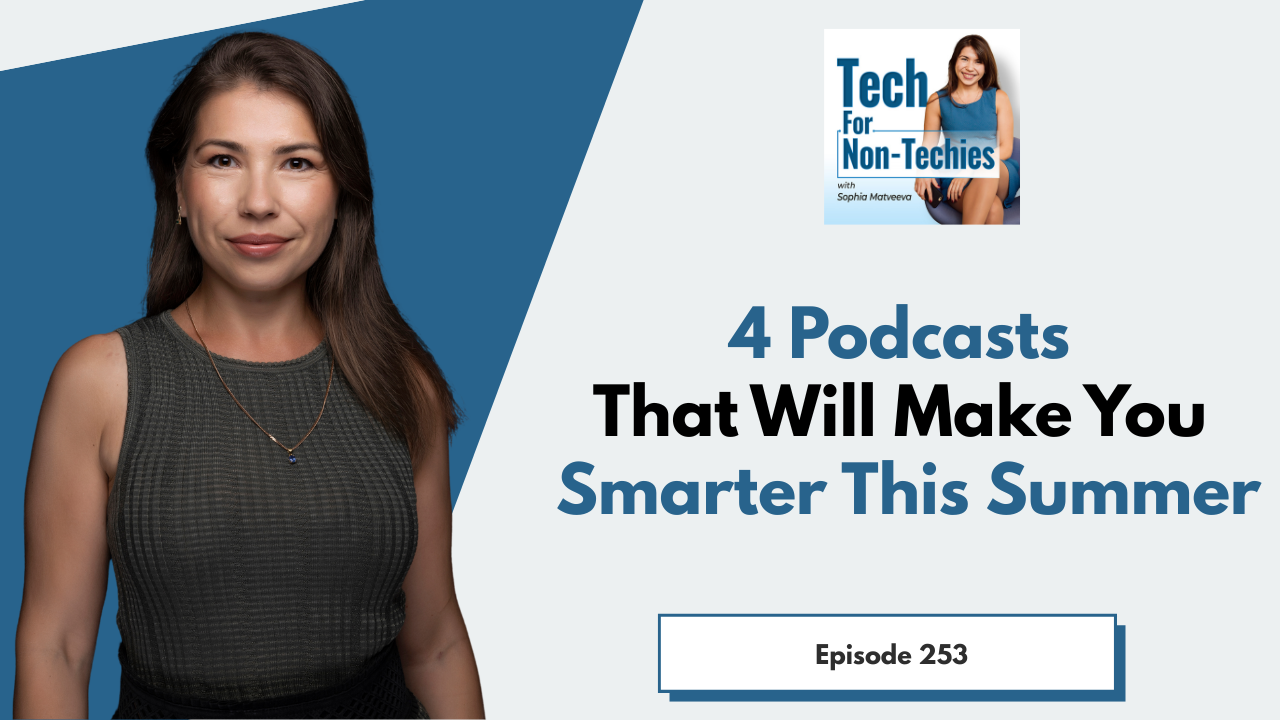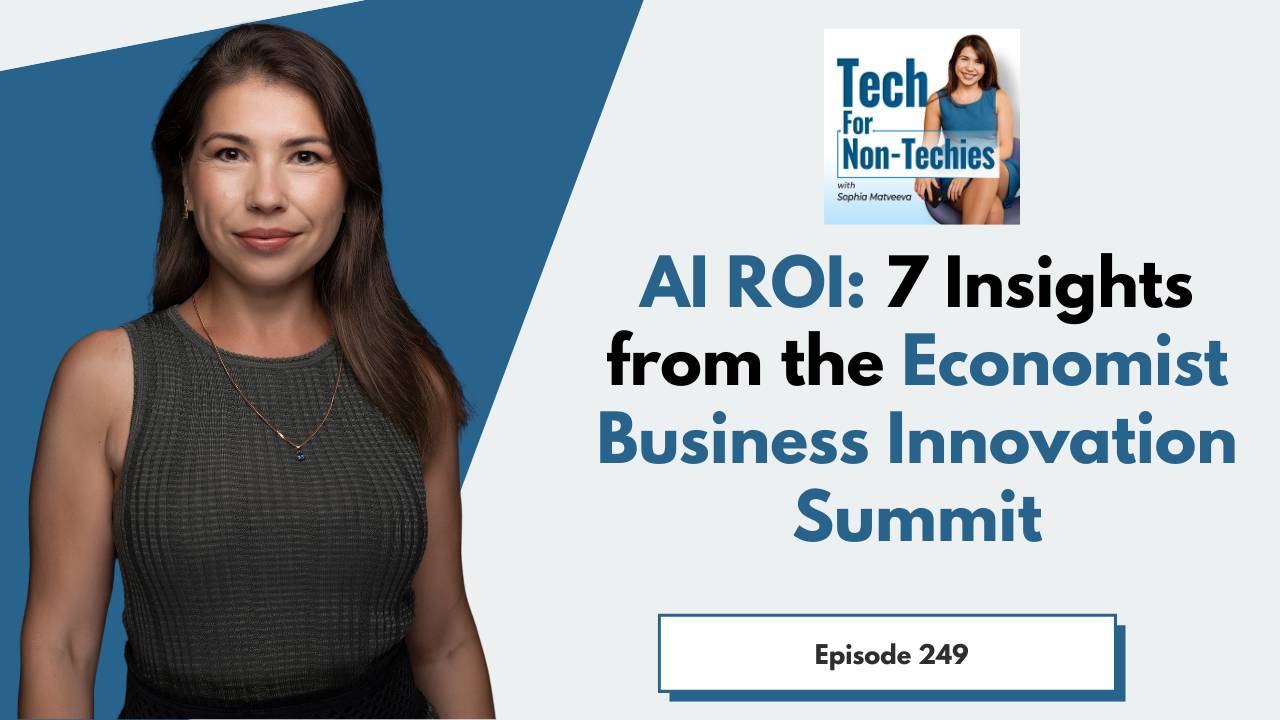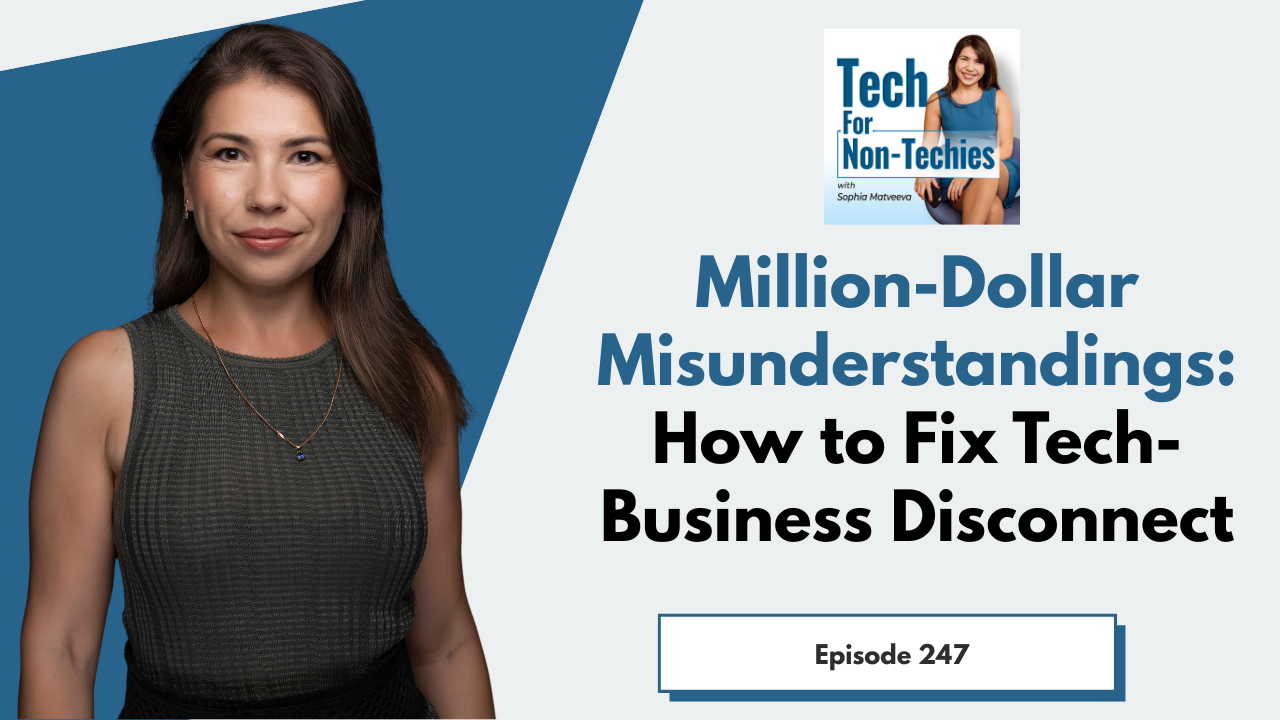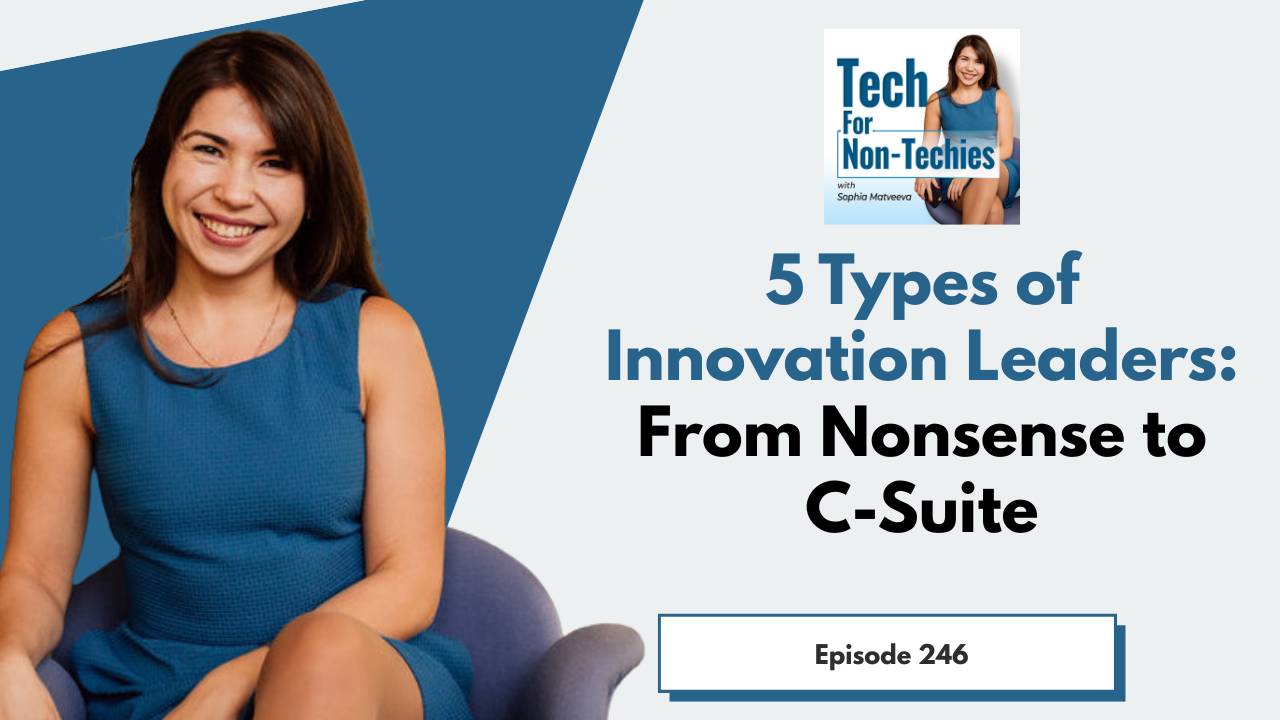Analysis paralysis is BORING. And it doesn't get you results.
Most founders think they fail because of the market, the product, or the pitch.
But the real killer is a slow mindset.
In this episode, Sophia Matveeva shows you why bad work beats perfect ideas — and how shifting your mindset ca...
If you’re building a tech product but don’t have a technical background, this episode will save you months of wasted time and thousands in unnecessary spend.
In this re-release of one of our most popular early episodes, Tech for Non-Techies founder Sophia Matveeva shares the 5 biggest mistake...
From accelerators to corporate venture capital, most startup support structures fail to deliver. Investor and entrepreneur Andrew Ackerman explains why — and what founders and corporates should do instead.
With over 70 investments and hundreds of founders mentored, Andrew brings rare perspect...
What does it really take to build a tech ecosystem that endures — beyond PR launches and startup grants?
In this episode, Sophia Matveeva shares hard-won insights from working with governments, corporates, and investors on the frontlines of global digital transformation.
Whether you’re funding...
Want to become a better tech innovator while you sit on a beach?
In this episode, Sophia Matveeva shares four podcast episodes you can learn from through osmosis—and enjoy every minute of it.
You will learn:
-
Why Netflix’s original CEO got fired by his co-founder—and what that says about st
...
Phil Knight spotted better running shoes in Japan — and turned that insight into Nike, one of the world’s biggest brands.
In this episode, you'll learn how thinking internationally sparks breakthrough ideas — and how to build a global edge into your career and business.
This episode is for you ...
Is today's AI hype cycle just dot-com boom 2.0?
In this episode, host Sophia Matveeva talks with David G. Ewing, who lived through the original tech bubble (literally in a closet in Palo Alto!) about the striking parallels between then and now.
Listen to learn lessons from dot-com history to na...
The more technology you put into your product, the worse it can get.
In this episode, Sophia Matveeva talks with Zahra Almahoozi, founder of DARB and recent graduate of the Tech for Non-Technical Founders program in Bahrain.
Discover how Zahra's "less is more" approach helped her build a startu...
Some companies waste millions on AI initiatives while others use it to gain serious market advantage.
In this episode, you'll learn the seven insights Sophia Matveeva, our CEO, got from The Economist's Business Innovation Summit and what they mean for your AI strategy.
This episode is for you i...
Here are the listener questions Sophia Matveeva answers in this episode:
- What should I be asking in product meetings if I don’t have a technical background?
- I’m leading a digital transformation initiative, but my tech team keeps telling me things take longer than expected. Should I push back? ...
Companies invest millions in tech projects every day. Some deliver remarkable returns while others crash and burn, wasting fortunes and careers.
The deciding factor? Rarely the technology itself—it's the disconnect between technical implementation and business objectives.
In this episode, you'l...
Some "Heads of Innovation" are glorified event planners while others transform entire businesses.
In this episode, you'll learn how to identify which type of innovation leader you're dealing with and what that means for your career or business.
This episode is for you if you:
- Want to pursue ...

